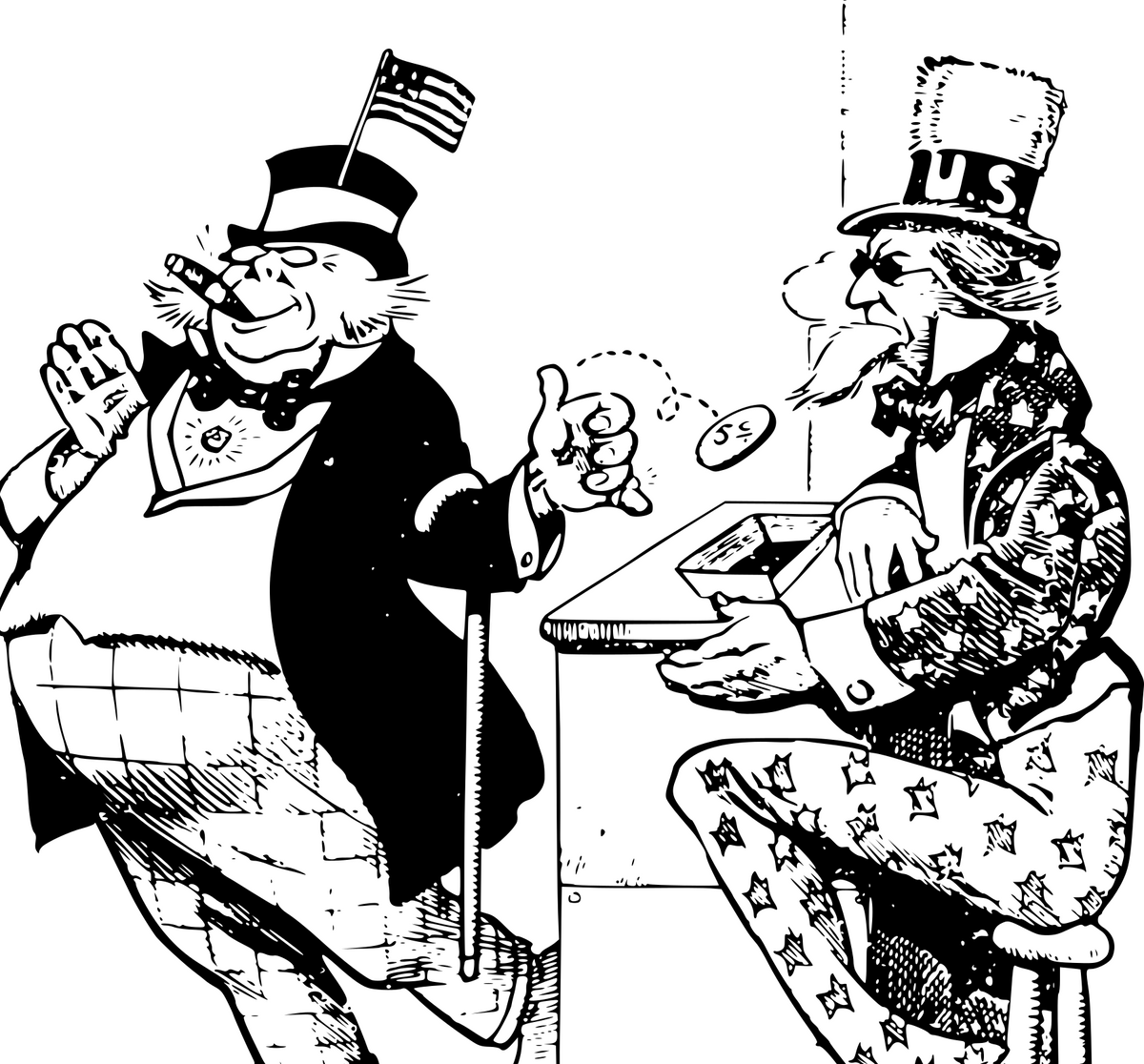Marx and Rawls: Opposites or Complements?

One of the most remarkable achievements of Marx is that starting with an academic background in jurisprudence and philosophy, which he studied at the University of Berlin in the 1830s, he turned to economics to clarify and deepen his ideas only after he was about 28 years old. It is a testimony to his marvelous gifts that he succeeded in becoming one of the great 19th century figures of that subject, to be ranked along with Ricardo and Mill, Walras and Marshall…Given the circumstances of Marx’s life, his achievement as an economic theorist and political sociologist of capitalism is extraordinary, indeed heroic.
John Rawls, Lectures on the History of Political Philosophy
Karl Marx was a world-historical figure who remains as widely loved and hated as any man ever has been. To many, he diagnosed the profound and irresolvable contradictions and forms of violence that inexorably emerge in liberal capitalist states like cancers. Less well known is the fact that Marx actually had many good things to say about liberalism, whose progressive force he routinely celebrated. John Rawls was the greatest liberal philosopher of the 20th century. His book A Theory of Justice is often credited with resuscitating Anglo-American political philosophy generally, and the social contract tradition specifically after a century of domination by utilitarianism. Less well known is the fact that Rawls expressed deep and persistent concerns about how compatible capitalism was with liberal justice, near the end of his life arguing that even moderate social democratic welfarism—itself crumbling in the face of a muscular neoliberalism—was insufficiently egalitarian and attentive to the least well off.
Both offer us formidable philosophical tools for analyzing and critiquing an era defined by deepening inequality and social tension. Yet sadly they are rarely put into dialogue with one another (the work of philosophers like G. A. Cohen or Charles Mills being a notable exception). This is a shame because Marx and Rawls in fact share many of the same concerns, even if they tend to formulate them in very different terms. And each thinkers’ work has considerable deficiencies that can find correction in the writings of the other. In the remainder of this article I will discuss some of the ways in which Marx and Rawls overlap, where they differ, and perhaps how their work can be put together constructively.
What does Marx offer Rawls?
One of the major problems in Rawls’ writing is the lack of a theory of power or history. This is accompanied by Rawls’ frustrating lack of engagement with the concrete problems of either the past or the present. There is no denying that Rawls, who fought bravely in the Second World War and was appalled by the the Holocaust and the aftermath of the Hiroshima bombing, was profoundly moved by the real injustices of the world. But you’ll rarely find reference to any of that from Theory of Justice onwards. As a work of “ideal theory” Rawls’ thinking consciously operates at a high level of conceptual abstraction; sometimes one so high that his very writing can come across as very technical and dry. He defends a conception of “justice as fairness” that is committed to both freedom and equality on the basis that it would be agreed to by self-interested reasoners operating behind a “veil of ignorance” which prevents them from knowing many of the specific characteristics and positions they occupy in the real world. What Rawls hopes to achieve with this thought experiment is to show how rational contractors could reason their way to liberal and egalitarian principles of justice if they are compelled to put aside biasing privileges and think more carefully about what kind of society works for everyone. Rawls goes on to argue that they would choose the principles of justice as fairness as the best ones, which would politically result in state somewhere between a “property owning democracy” or what he called “liberal socialism” in his final book Justice as Fairness; A Restatement.
Marx would likely argue that this way of approaching justice is both naively utopian and irredeemably ahistorical. It is utopian in the sense of offering transhistorical principles of justice to orient the state, without any concern for the actual material relations and forms of domination that characterize the real world. It is ahistorical in basing its argument on a hypothetical thought experiment, rather than focusing on the social conditions which have brought about the world we live in and which continue to frame our culture and politics. From an orthodox Marxist standpoint, it makes little sense to reason about justice and politics this way. At best one comes up with intellectually interesting but politically impotent abstract theories, and at worst someone like Rawls only winds up offering thinly veiled justifications for the status quo or reformist dreams which will never come to fruition. The Poverty of Philosophy’s critical denunciation of early socialists as “[mere] utopians who, to meet the wants of the oppressed classes, improvise systems and go in search of a regenerating science” would seem to apply wholesale to Rawls and his relentless plea for a just society to prioritize the least well off.
But, contrary to superficial analyses, Rawls was in fact quite aware of some of these problems. He was one of the first liberal theorists to argue that it was not the individual, but the “basic structure” of society and its principles which were the “first subject of justice.” This is a lesson Rawls claims to have learned from Hegel and Marx. Brian Barry pointed out this constitutes something of a watershed moment in liberal theory since Rawls doesn’t make the long criticized “atomized individual” the central subject of justice. This is very important since Rawls is deeply aware that for everyone to get equal value from the principles of justice, the basic structure of society has to be organized to preclude the few from hemorrhaging power at the expense of the many. For Rawls this included inhibiting concentrations of economic power, both for its own sake and because was well aware that greater political power often flowed from economic status and resources. In Justice as Fairness: A Restatement, the core of his argument for liberal socialism isn’t just that it would be to the greatest benefit of the least well off. It’s that too much economic inequality will result in many citizens not getting “fair” value from their nominally equal political liberties. For instance the tremendous political power that capitalists get from owning the means of production means that we do not in fact live in a truly democratic society, where each citizen participates meaningfully in determining the laws which govern us. Rawls was right to worry, in a genuinely Marxist sense, that this was an unstable condition for liberal states as the divide between stated ideals and the lived reality of plutocratic domination became clearer and starker. While he wouldn’t have accepted Marx’s occasionally more optimistic statements that these tensions will resolve themselves in a progressive direction, Rawls would undoubtedly have argued that there is no way of simply responding to them with endless apologias for meritocratic mythology and condemning the unruly public for its ignorance. He would agree with Sam Adler Bell that responding to the “profound antinomies and resentments born of material realities” requires us to commit ourselves “new kinds of politics” that takes the processes of the basic structure and the qeustion of its overall legitimacy very seriously.
What does Rawls offer Marx?
By contrast with Rawls, Marx had almost no interest in writing works of ideal theory. At times he even made fun of those who wanted to write “recipe books for the cook shops of the future.” Where Marx truly shined was as a critical analyst; with his main subject of course being the spectacular and often vicious emergence of capitalism through the 19th century. He was one of the great unmakers in intellectual history; showcasing how far from being either natural or pacific, capitalism had only recently burst onto the scene through violently overthrowing the old political and economic order. In many cases Marx pointed out that this was something to be applauded. After all, the replacement of tyrannical feudalism with capitalism helped bring about the decay of the privileged aristocracy and its replacement by a liberal society where at least in principle everyone was equal and free under the law. But he had nothing but withering disdain for those who thought that this meant that inequalities of power and associated forms of domination had vanished the moment Louis XVI’s head parted his body. Marx observed how the “liberal” capitalist states of his era engaged in massive projects of genocidal imperial expansion abroad, while often adopting a distinctly illiberal approach to dealing with worker’s movements at home. He was also deeply aware of how unstable capitalism could be, often falling victim to periodic crises which brought misery and chaos that spread like an infection through the entire global economy. More infamously, Marx projected that a new, higher form of society would come which carried forward the benefits of liberalism and capitalism while shedding their limitations.
Despite being known as the founding father of communism, if one adds up every line of work Marx wrote about the glorious future to come you might wind up with a medium sized magazine article. His remarks about ideal justice were sporadic and evocative, such as his rather Aristotelian claim in Capital Volume Three that the true human freedom to come lay “beyond the realm of material production proper” in the “development of human powers as an end in itself.” Or his critical observations in the “Critique of the Gotha Program;” where Marx chastises socialists committed to pure egalitarianism. This is because Marx argues that different human beings have distinct needs and abilities which any approach to distributive justice will have to accommodate for if it is to secure the true flourishing of all. Ben Burgis has rightly pointed out that this sounds a lot like the kind of context sensitive reasoning Rawls deploys to get to his famous “difference” principle” These are all interesting claims, but they are unsystematic and often simply asserted without much development. It’s perhaps the case that Marx simply thought it was unnecessary to put much thought into this, since his theory of history demonstrated that one way or another progressive change was coming—whatever form it took. In this, the political theorist Sheldon Wolin was right to point out that Marx ironically let his optimism trump the more realistic conclusions about capitalism’s adaptability which his own critical analysis consistently led him to.
Here it seems to me that Rawls offers a necessary corrective to the limitations of Marx’s account of distributive justice. Contrary to some of his more millenarian interpreters, Marx never claimed that even a revolutionary movement could simply remake the world at whim. As a good historical materialist he insisted in the “Critique of the Gotha Program” that even a socialist future would be “stamped” by features of the old society. To the extent that it would indeed be a society that was free, there are few reasons it couldn’t respect all the liberal freedoms defended by figures like Rawls. Indeed, to the extent liberal socialists from J. S. Mill to Rawls held that there was no intrinsic link between liberalism and a commitment to defending expansive conceptions of property rights and Marx held that the political freedoms achieved by liberalism would not only be safe but expanded by his kind of radicals there would seem to be less distance between them than one would expect. On the issue of how to best organize the economy and distributive justice, Marx is quite clear that simply giving everyone equal resources will not cut it. And we should also follow Rawls in being concerned to not ruin incentive structures where they increase efficiency to the benefit of the least well off. So adopting something like the difference principle, coupled with extending democratic structures to corporations by allowing workers more and more of a say in their governance, would go a long way towards jointly realizing their ideals. We should also follow Rawls and Marx in being adaptable to empirical circumstances when thinking through these issues, and recognize that these kinds of general principles will have to be applied in a variety of different ways depending on social and historical contexts.
A republican conciliation?
A more practical point of conciliation between Rawls and Marx might be achieved via a short circuit through the republican tradition. Marx himself was interested in republicanism, and even wrote positively about it in The Civil War in France. The notion of an active citizenry directly engaged in self-government was deeply appealing to him, and one of his ambitions was to extend this line of thinking to the economy—which had been paradoxically alienated from politics through the legal reforms of the modern state. Rawls also has sympathies in this direction, particularly with regard to securing equal worth for basic political liberties and ensuring the ongoing justificatory process of giving public reasons for our views. But Rawls would likely been critical of the Marxist conviction that the liberal division of powers is simply a way of maintaining class power against democracy, and consequently that supercharging the powers of the legislative branch is a way forward. This is because the potential for such an empowered legislature to violate individual rights without checks on its power is tremendous. On the hand Marxists would rightly fire back that Rawls’ conviction that the debates of public reason are perhaps best seen in the deliberations of the Supreme Court is naive. It ignores the SCOTUS’ status as a powerful and elite institution which very much advances an agenda of its own; often not just in the face of the democratic will but even while violating certain fundamental liberal rights such as the right to freedom of choice
None of this is intended to be comprehensive, and this article brushes past a number of important questions. Not the least crucial is the rather high theoretical question of whether the dialectical method so central to Marxist analysis could ever be harmonized with Rawlsian style ideal theory. Many are convinced it cannot. In his Valences of the Dialectic Fredric Jameson even characterizes ideal moral and political theory as a “regression” from the grail-like unity of theory and practice Hegel, Marx, and many others aspired to. I am not sure this is true. The animating idea of modernist doctrines like liberalism and Marxism is that society isn’t an unchanging natural or divine entity, let alone some sublime Gothic compact whose traditions and hierarchies we are to reverence for their own sake. Society is a contingent and historical creation of human effort. Like everything our crooked humanity produces, in the wrong hands it can become a domineering power over us. In the right ones society is their project of creating a shared world together as free equals. For many in this time of rage the conviction that society means dominating power operating to the benefit of the few rather than all runs white hot. Maybe it’s time for a big change.
Featured Image is Rich Man and Uncle Sam




